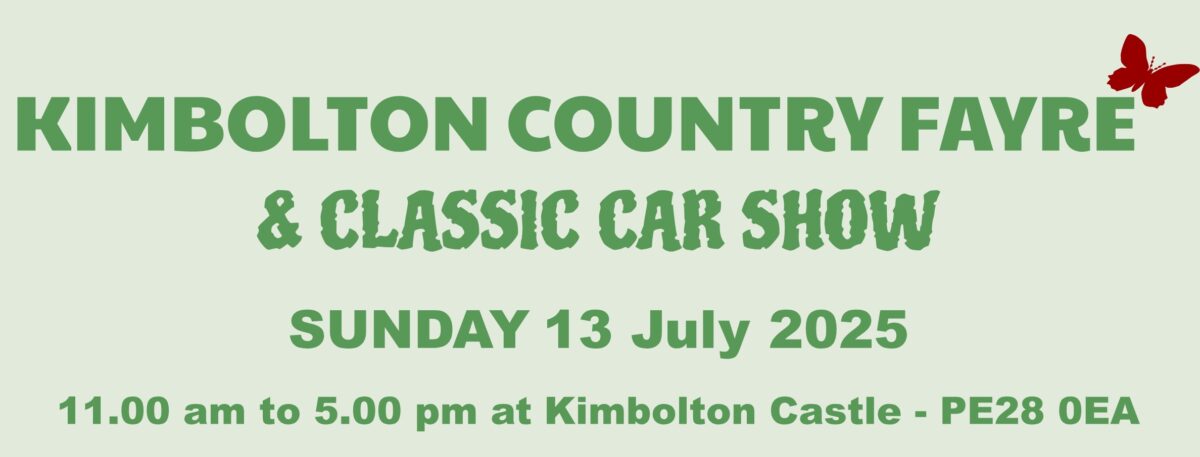End Plastic Soup – Kimbolton Castle Rotary Club takes a lead
Kimbolton Castle Rotary Club is the District 1070 Ambassador club for the Rotary movement ‘End Plastic Soup’ charged with removing discarded plastic from our natural environment and curtailing or preferably stopping the unnecessary use and disposal of single use plastics in its events and everyday lives. As new research builds, reasons to stop using them are exponentially increasing, so where with a little more effort we can reduce or stop a particular use, it would seem eminently sensible to do so.
Plastic is, at the end of the day, a highly toxic material that’s infiltrated every aspect of our daily lives. The goal above all others should be to stop manufacturing so much of it, eliminating unnecessary plastics, like the single-use variety. The challenge is that plastic remains absurdly cheap to produce, and its many detrimental external costs, incredible thought it may seem are it still to many, acceptable.
The largest source of micro and nano plastics are the fragmentation of larger items in the environment. So ultimately, action to address the UN declared plastics crisis must include a reduction in the production of a wider range of plastic products rather than just those containing microplastics.
Without action, plastic production could triple by 2060. Yet, on conclusion of the Ottowa talks in April where 180 nations debated the content of the global plastic pollution treaty, with text that contains more than 60 references to microplastics, some nations seem set on a path to increase production rather than reduce it. New material processes such as biodegradable plastics with for example heat resistant bacterial spores that activate on disposal in an organic environment may offer benefits in specific circumstances but won’t solve plastic pollution.
A global plastic treaty will only work if it caps production, and production is linked to demand. In our current way of thinking we perhaps believe recycling of plastic is a good idea and though it is better than landfill or incineration, it is also bad for the environment. Every time plastic is recycled it degrades and consequently cannot be recycled more than a few times and when recycled a study published earlier in May 2024 found that a single plastic recycling facility even with filters might emit 3 million pounds by weight of microplastic a year in its wastewater, which flows into the environment! So we just need to stop.
Many in the club have taken several steps to reduce single use plastic, eg not buying water in plastic bottles, using refill stations, buying 5 Litre containers of bodywash, conditioner, washing up liquid, etc instead of multiple smaller containers and where there are easily available alternatives switching to glass bottles, or even better recycled glass bottles or aluminium, recycled board containers and similar.
When shopping in our busy lives; most it seems, evidenced by the continuing sale of products with plastic film as the default, continue to buy the products anyway. So what would it take to stop us using it?
Three things I can think of, one is that none of us like being green washed, so when Waitrose as a clear act of tokenism installed a single recycling bin about the size of a dustbin for all its customers to recycle their single use film with a slot that only takes a few pieces at a time through a narrow slot, I was somewhat incensed. In addition to writing to them on multiple occasions, I now when I eventually have enough, leave a bag of it next to their container.
The second reason that may lead to a step change in our personal actions is the increasing evidence linking
nano plastics to an increased incidence of strokes and heart attacks, it has been found in plaque lining arteries, restricting flow. When we inhale for example, nano plastics can cross membranes into our blood supply. Another alarming report the UNEP released this year found that of the 13,000 known chemicals associated with plastics and their production, at least 3,200 have one or more hazardous properties of concern. Ten groups of these chemicals are of major concern, such as ‘Forever chemicals’. Of particular toxicity are a wide range of chemicals in plastics with endocrine-disrupting properties, which short-circuit the hormone system even in very low doses, leading to obesity, cancer, and other diseases. In fact today I read microplastics have now been found in human testicles.
Thirdly and probably most impactfully, is if taxes were levied, but with the electoral system as it is, no UK Government is likely to risk such a move, or at least not until the expected astronomic health costs hit.
The Kimbolton Country Fayre committee has moved from asking participants to move away from single use plastic to running the event as single use plastic free and stall holders and caterers are required to ensure they swap out their single use plastic items. Reusable cable ties are advocated. We no longer sell drink in plastic bottles, the ice cream vendors now use wooden spoons etc.
As a club we engage in litter picks in Kimbolton and surrounding villages and via our Young Environmentalist competition encourage young people to engage with Environmental issues.
Next personal steps for us as individuals might be refusing the plastic clothes bags at dry cleaners, asking a supermarket to unwrap cling filmed cheese and put it in another container. Writing to your supermarkets and other suppliers. I recently closed my account with a print supplier because of their use of bubble wrap for example. In Stuttgart I found cherry tomatoes in purely carboard containers, and sent the local supermarkets the picture. We can all do our bit.
Chris Davies
Club Environment Lead

